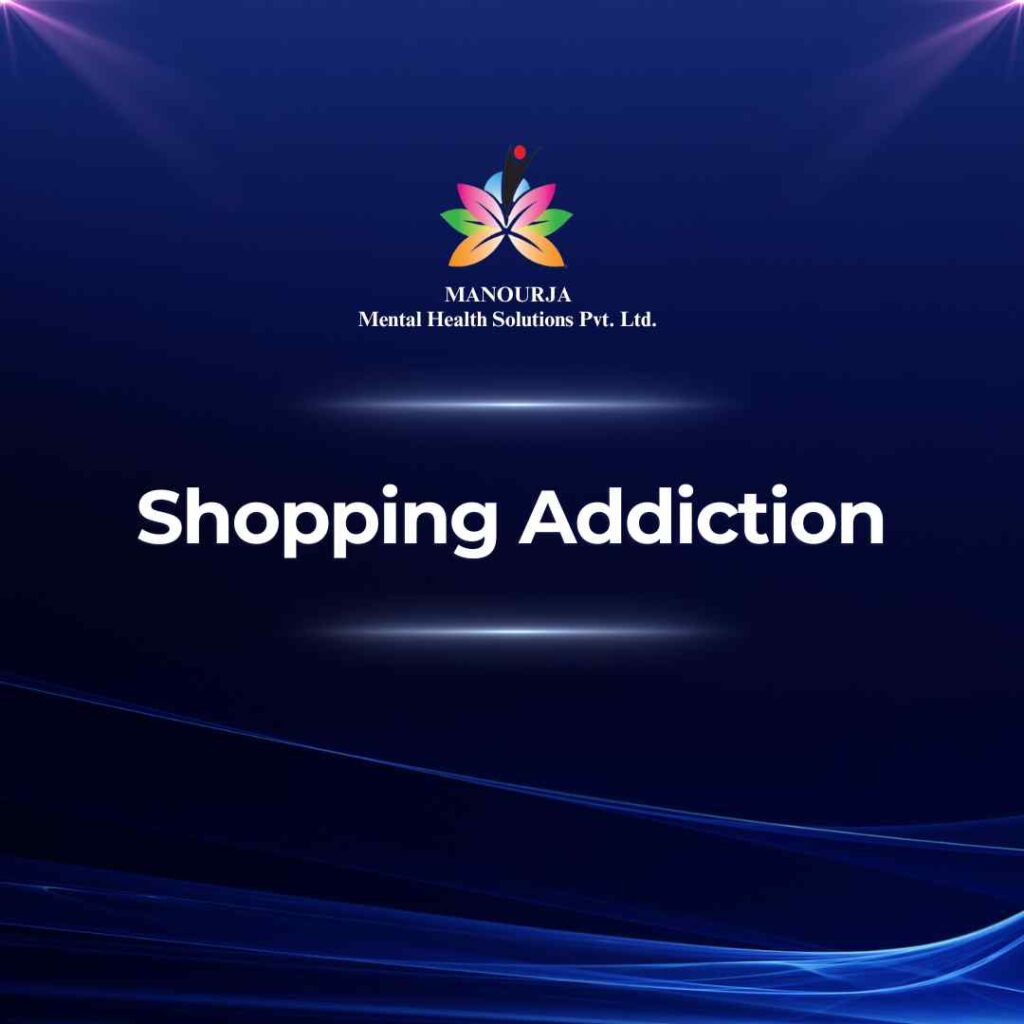Shopping Addiction

Shopping addiction, also known as compulsive buying disorder or compulsive shopping, is a behavioral addiction characterized by an excessive, repetitive, and uncontrollable urge to shop and acquire goods, often leading to financial, emotional, and interpersonal problems.
Here’s an overview of shopping addiction, including its features, causes, and consequences:
Symptoms
- Excessive Spending: Individuals with shopping addiction often engage in frequent and excessive shopping sprees, buying items they don’t need and often can’t afford.
- Loss of Control: Despite efforts to resist or cut back on shopping, individuals with this addiction find it difficult to control their urges and impulses to shop, leading to continued excessive spending.
- Preoccupation with Shopping: Shopping addicts may spend a significant amount of time thinking about shopping, planning their next purchases, or fantasizing about acquiring new items.
- Emotional Relief: Shopping may serve as a way for individuals to cope with negative emotions such as stress, anxiety, depression, or loneliness. The act of shopping and acquiring new items can provide temporary relief or a sense of euphoria.
- Interference with Daily Life: Shopping addiction can interfere with various aspects of life, including finances, relationships, work, and social activities. Individuals may neglect responsibilities, accumulate debt, or experience conflicts with loved ones due to their shopping behavior.
Causes
- Underlying Psychological Factors: Shopping addiction may be linked to underlying psychological issues such as low self-esteem, depression, anxiety, or a need for validation and self-worth through material possessions.
- Genetic and Biological Factors: Some individuals may have a genetic predisposition to addictive behaviors, including shopping addiction. Differences in brain chemistry and functioning may contribute to the development of compulsive shopping tendencies.
- Environmental Influences: Growing up in an environment where material possessions are highly valued, or experiencing financial instability or trauma, can increase the risk of developing shopping addiction.
Consequences
- Financial Problems: Excessive spending can lead to financial difficulties, including debt, bankruptcy, and the depletion of savings or retirement funds.
- Relationship Strain: Shopping addiction can strain relationships with family, friends, and partners, especially if loved ones are affected by the individual’s financial irresponsibility or neglect.
- Emotional Distress: Despite temporary feelings of pleasure or relief while shopping, individuals with shopping addiction may experience guilt, shame, regret, or depression afterward, exacerbating their emotional distress.
- Legal and Occupational Issues: Compulsive shopping may lead to legal consequences, such as theft or fraud, and can also interfere with work performance and career advancement.
Addressing shopping addiction often requires a combination of therapy, support groups, financial counseling, and behavioral interventions aimed at addressing underlying psychological issues and developing healthier coping mechanisms.
At MANOURJA, we believe in the transformative power of counseling. Our experienced therapists offer a safe and supportive space where you can explore your thoughts, emotions, and challenges. Through personalized counselling sessions, we’ll work together to develop coping strategies, build resilience, and achieve lasting positive change. Discover the path to a healthier, happier you with MANOURJA counselling services.
MANOURJA Rehabilitation Services
At MANOURJA, we’re dedicated to helping you in rebuild your life, after difficult times. Our rehabilitation services focus on understanding what you need to move forward, whether you’re recovering from addiction, trauma, or any psychological – social challenges. We create personalized plans, that are all about helping you, regain your strength and find hope again. With a caring team by your side, you’ll have the support to make real progress and take steps toward a brighter, healthier future
